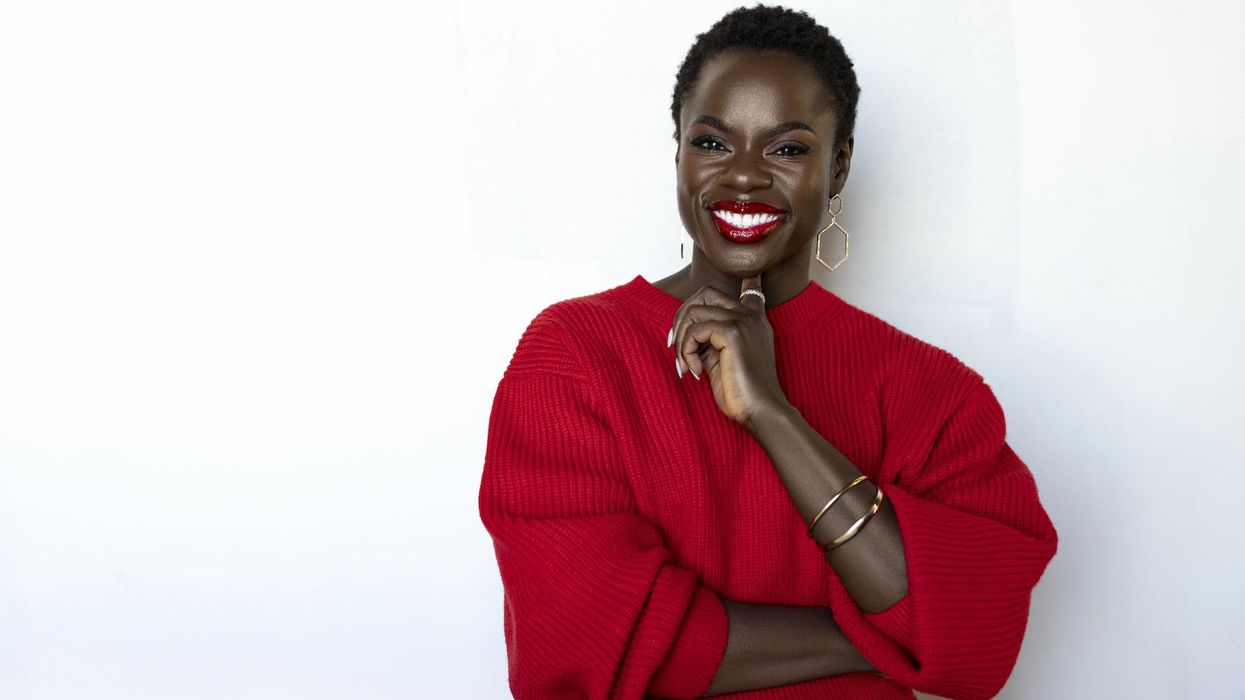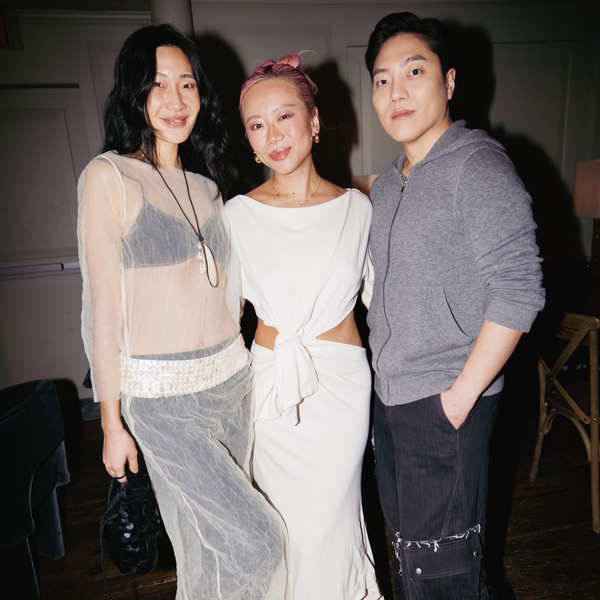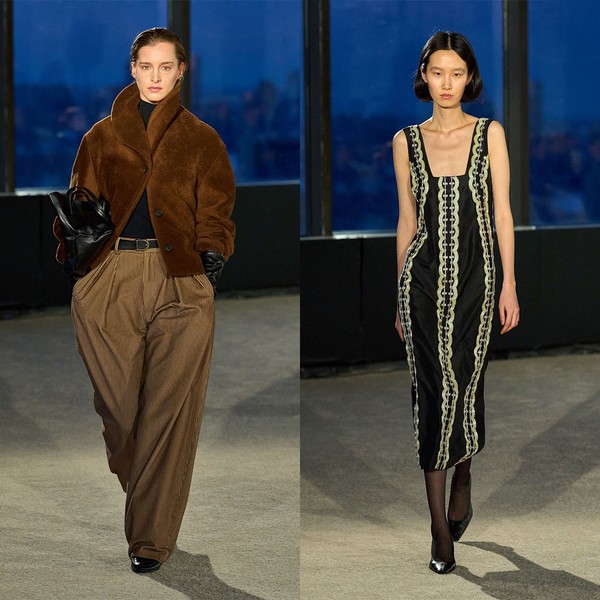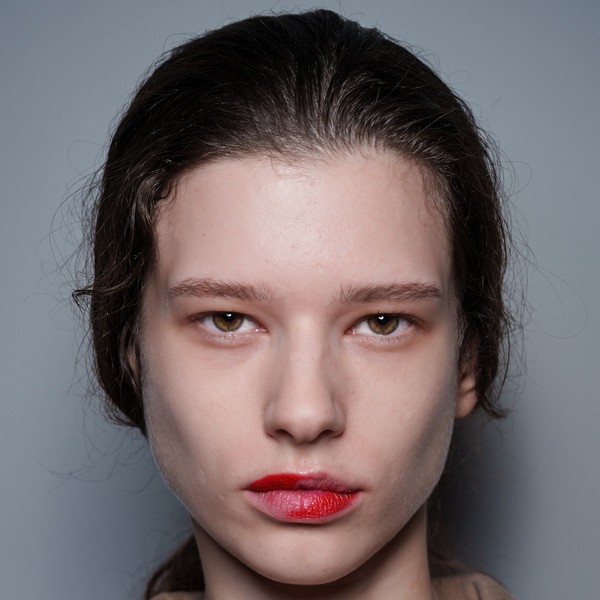Peloton Instructor Tunde Oyeneyin Is All About Soul Care
"Self-care is looked at as this luxurious thing, but when you replace it with soul care, these things become acts that you’re doing for the good of your soul."

Welcome to The Simple Things, a wellness series dedicated to the routines and rituals that bring a sense of well-being to our daily lives. As the name implies, sometimes it’s not about making seismic shifts in our day-to-day—simple actions can be just as impactful for ourselves and for those in our community. This week, we’re chatting with Tunde Oyeneyin—Peloton instructor, motivational speaker, and newly-minted author—about growing up in a Nigerian household, bringing her memoir to fruition, leaning into soul care, and more.
You grew up in a Nigerian-American household. I know that sometimes growing up in families where our parents don't have the verbiage to say "this is my wellness practice" that concept can feel out of reach. Growing up, what did wellness look like for you?
"In my household, wellness was the comfort of food, family, laughter, cranking the music all the way up, dancing, and I also would say prayer. That’s how my parents showed [me] wellness. My mom would go and get her nails done from time to time, but for the most part, she would do her nails herself. I also used to see my mom make her own jewelry. Nobody’s ever asked me this question, but now that I think of it, my mom would always make her own jewelry, do her own nails, and color or relax her own hair. I always saw my mom doing for herself, almost as an act of wellness. But yes, especially in immigrant families, I don’t remember my mom going to the spa and doing a spa day.
Rather than speaking to it as self-care, I always call it soul care. Self-care is looked at as this luxurious thing, but when you replace it with soul care, these things become acts that you’re doing for the good of your soul. So from my mother, I realize now that that was cooking for her family—that felt good for her soul. The patience that it took to sit and make jewelry, she did it for herself and for her soul. For me, sometimes it’s just listening to music in the mornings—Burna Boy in particular."
Since your career is so fitness-centric, do you feel pressure to share every element of your wellness practice online? Do you ever feel like indulging isn’t as Instagram-friendly?
"Do I feel the need to share all of my wellness practices? No, because that wouldn’t be a wellness practice for me. That would take the well out of it and it would just be this practice. If I felt the need to post every meal and every workout, they would become assignments and tasks. They’d no longer be things I'm doing for me, but things that I’m doing for the approval and the eyes of everybody. That doesn’t mean that I don’t post from time to time, but what keeps it fun is that it’s only from time to time.
And for the other part of that, I’m not the trainer who preaches green juice and green vegetables at every meal. I happen to really love vegetables, but I’m pretty sure I sat down and had three pieces of chocolate before this interview. I don’t even know if I’d call it an indulgence because then it sounds like this naughty thing. Like, if you’re going to do it, enjoy it. Don’t sit there and eat it with regret. There’s balance with everything and I practice balance."
I’ve heard that the process of writing a book can be soul-wrenching, especially a memoir. How did you take extra care of yourself while you were writing your new book, Speak?
"Writing a book is such a wild, intricate process. To be vulnerable requires you to grab a key, unlock the door, and let all of this stuff float out that you had stored away. Writing a book makes you relive moments and memories, which is really, really challenging and really healing. The process of writing a book forced me to relive moments and thoughts that I hadn’t thought about in that way in a long time. There’s healing in that, but there’s also a lot of growth because when you sit down and tell the story, you’re able to see so much of your life and your work in 200 pages. To be able to track your growth makes you feel gratitude for how far you’ve come."
Were there any moments while writing your book where you had trouble getting through a story or putting pen to paper? What did you do to get through those moments?
"I start the book off by saying that in life when you sit down and meet a new friend, you don’t start at the very beginning. You start by telling your story and once you gain trust, you go there a little bit more. This book was kind of like that. You have all these different stories and then you’re trying to find a way to make the word and stories fit, then it all falls into place. I wrote this book with a woman named Hilary Liftin, who was able to take all of my thoughts and when I couldn’t see how the puzzle was going to connect, she was able to move the pieces so that everything lived together really well. It requires you to surrender and have patience with the process."
You’ve been really transparent about your career evolution. There’s a clip you worked on with Nike where you talk about everyone expecting you to become a doctor, then you became a makeup artist and now you’re a Peloton instructor. What advice would you give to someone who is intimidated by these ebbs and flows?
"I would say when you’re not ready, do it anyway. With women specifically, we don’t nominate ourselves because we don’t feel like we’re ready or experienced enough, but I say put your hand up, nominate yourself, and do it anyways. Go after it anyways. Audition for it anyways. Interview for it anyways. I hadn’t taught a cycling class before I taught my first cycling class, but I had worked with people before. I was a makeup artist and at the end of the day, it was a communication-based relationship that I was doing in that world. I was gifting people with confidence by virtue of a brush then I was gifting people with confidence by virtue of a stationary bike. One thing weaves between the next, so do it anyway. You’ll learn it along the way."
There’s this adage "do it afraid," which is easier said than done, but it always needs to get done.
"For sure. I love that. The beauty of uncertainty is infinite possibility. When you don’t know what’s next, anything can be next. I live my life by that. When doubt enters, I try not to hear it. Although doubt is uncomfortable, I try to lean in and listen to what it’s trying to say. From there, the growth happens."




